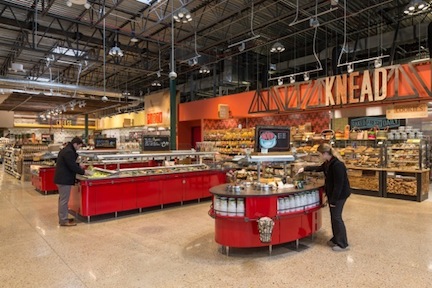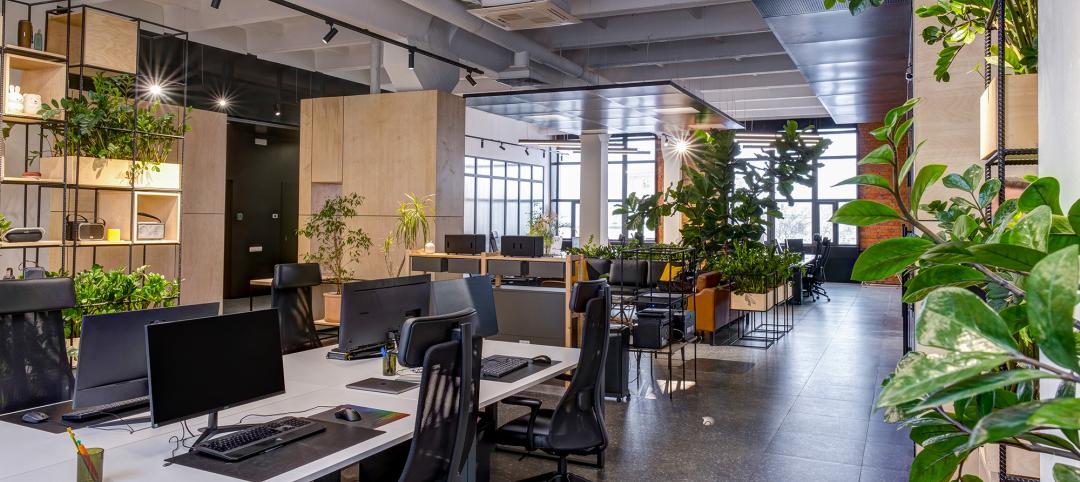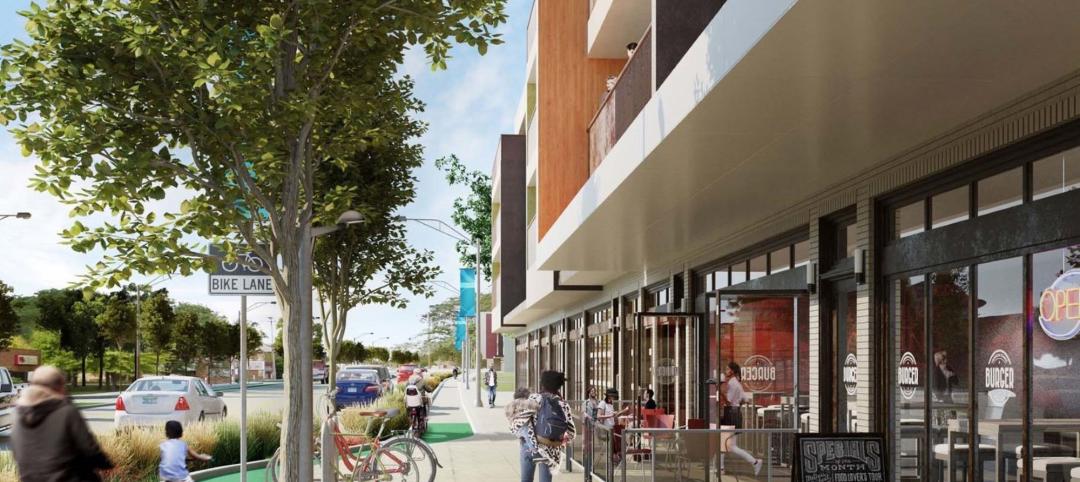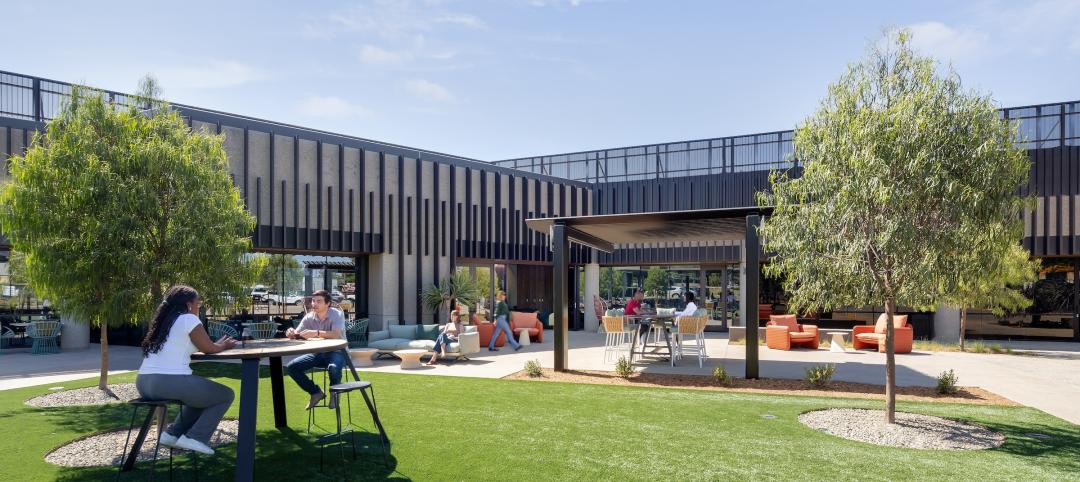Portland, OR – The Green Building Initiative® (GBI) has announced a wave of Green Globes certifications for new grocery stores across the nation.
The properties include New Seasons Markets in Oregon, and Whole Foods, Price Chopper, Aldi’s, Harris Teeter, Wegmans, and Publix stores across the country.
New Seasons director of construction and facilities Wayne Pipes said Green Globes certification helps validate the company’s sustainability story. “We were the first B-Corp grocer in the world—sustainability is part of our DNA,” Pipes said. “We're classified a Zero-Waste company, and using less energy is part of who we are. Green Globes help make our mission clear throughout the community at large as we continue to grow.”
“Grocers’ need for refrigeration make energy-efficient construction and operations especially critical, both from an environmental and an economic standpoint,” Jerry Yudelson, president of Green Building Initiative, said. “Green Globes is ideal for retail environments because of its integration with the ENERGY STAR® program—which includes supermarkets as a building occupancy category—and because it accommodates different building scenarios by not applying penalties for features that aren’t applicable.”
To date, nearly 50 Whole Foods stores have been certified or are now in the Green Globes process. In 2013 Whole Foods expanded its sustainability efforts by taking its first existing building through Green Globes, a store in the Hollywood district of Portland, Oregon, which earned a Three Green Globes Rating.
“If you’re looking for ways to reduce your building footprint or wondering where your facility stands on the green spectrum, this [Green Globes] process has a lot of merit,” Whole Foods Pacific Northwest Region construction manager Bob Gordon said. “The comprehensive evaluation looked at both how the building was built and is operated. It will help us piece together a preventative maintenance program for the whole region. In the long-term, the Green Globes suggestions save money and enhance the facility.”
The Green Globes certification process also incorporates the EPA’s GreenChill Store Certification Program for Food Retailers, which recognizes individual stores for using environmentally friendlier commercial refrigeration systems. Stores also can achieve certification under GreenChill itself.
About the Green Building Initiative™ - The GBI is a nonprofit organization and American National Standards Institute (ANSI) Standards Developer dedicated to accelerating the adoption of green building practices. Founded in 2004, the organization is the sole U.S. provider of the Green Globes® and federal Guiding Principles Compliance building certification and professional accreditation programs. http://thegbi.org.
Related Stories
MFPRO+ New Projects | Oct 30, 2024
BIG’s One High Line finally reaches completion in New York City’s West Chelsea neighborhood
One High Line, a luxury residential project spanning a full city block in New York’s West Chelsea neighborhood, reached completion this summer following years of delays related to investor lawsuits.
Urban Planning | Oct 30, 2024
Bridging the gap: How early architect involvement can revolutionize a city’s capital improvement plans
Capital Improvement Plans (CIPs) typically span three to five years and outline future city projects and their costs. While they set the stage, the design and construction of these projects often extend beyond the CIP window, leading to a disconnect between the initial budget and evolving project scope. This can result in financial shortfalls, forcing cities to cut back on critical project features.
MFPRO+ New Projects | Oct 30, 2024
Luxury waterfront tower in Brooklyn features East River and Manhattan skyline views
Leasing recently began for The Dupont, a 41-story luxury rental property along the Brooklyn, N.Y., waterfront. Located within the 22-acre Greenpoint Landing, where it overlooks the newly constructed Newtown Barge Park, the high-rise features East River and Manhattan skyline views along with 20,000 sf of indoor and outdoor communal space.
Libraries | Oct 30, 2024
Reasons to reinvent the Midcentury academic library
DLR Group's Interior Design Leader Gretchen Holy, Assoc. IIDA, shares the idea that a designer's responsibility to embrace a library’s history, respect its past, and create an environment that will serve student populations for the next 100 years.
Resiliency | Oct 29, 2024
Climate change degrades buildings slowly but steadily
While natural disasters such as hurricanes and wildfires can destroy buildings in minutes, other factors exacerbated by climate change degrade buildings more slowly but still cause costly damage.
Office Buildings | Oct 29, 2024
Editorial call for Office Building project case studies
BD+C editors are looking to feature a roundup of office building projects for 2024, including office-to-residential conversions. Deadline for submission: December 6, 2024.
Healthcare Facilities | Oct 28, 2024
New surgical tower is largest addition to UNC Health campus in Chapel Hill
Construction on UNC Health’s North Carolina Surgical Hospital, the largest addition to the Chapel Hill campus since it was built in 1952, was recently completed. The seven-story, 375,000-sf structure houses 26 operating rooms, four of which are hybrid size to accommodate additional equipment and technology for newly developed procedures.
Multifamily Housing | Oct 28, 2024
A case for mid-rise: How multifamily housing can reshape our cities
Often referred to as “five-over-ones,” the mid-rise apartment type is typically comprised of five stories of apartments on top of a concrete “podium” of ground-floor retail. The main criticism of the “five-over-one” is that they are often too predictable.
Sports and Recreational Facilities | Oct 24, 2024
Stadium renovation plans unveiled for Boston’s National Women’s Soccer League
A city-owned 75-year-old stadium in Boston’s historic Franklin Park will be renovated for a new National Women’s Soccer League team. The park, designed by Fredrick Law Olmsted in the 1880s, is the home of White Stadium, which was built in 1949 and has since fallen into disrepair.
Laboratories | Oct 23, 2024
From sterile to stimulating: The rise of community-centric life sciences campuses
To distinguish their life sciences campuses, developers are partnering with architectural and design firms to reimagine life sciences facilities as vibrant, welcoming destinations. By emphasizing four key elements—wellness, collaboration, biophilic design, and community integration—they are setting their properties apart.

















